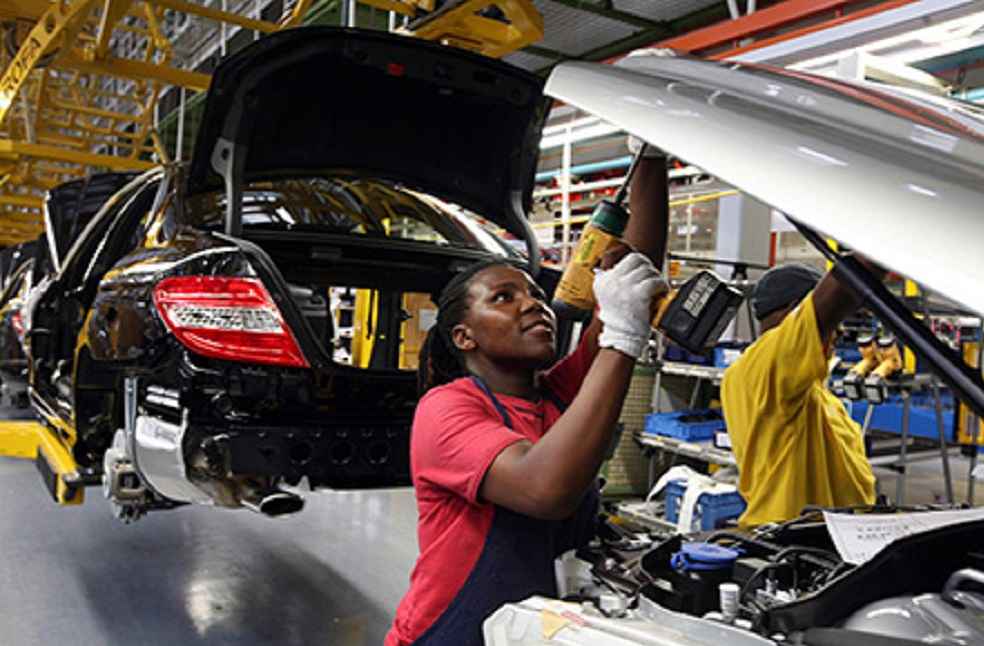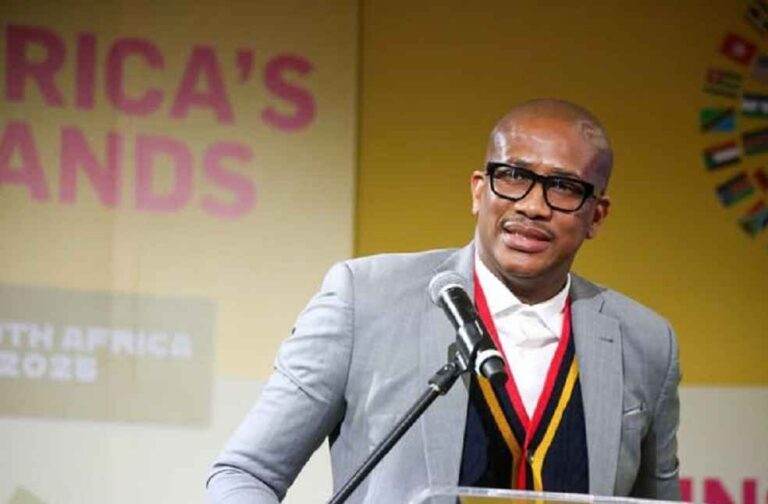Deputy Minister in the Presidency Kenny Morolong has sounded the alarm over the rising influx of illegal car imports and other second-hand vehicles, warning that the trend is undermining South Africa’s ambitions to develop a competitive New Energy Vehicle (NEV) industry and hindering the country’s potential role in advancing intra-African trade.
Speaking at an automotive dialogue organized by Brand South Africa during the Auto Forum at the Intra-African Trade Fair in Algeria, Morolong said the unchecked entry of these vehicles is obstructing efforts to build a sustainable automotive sector. South Africa has committed to expanding its capacity for producing NEVs, including electric and hybrid models, in line with global environmental goals and continental industrialization strategies.

“The promise of a New Energy Vehicle is within our grasp, but our progress is hampered by a persistent challenge, the flood of illegally imported second-hand vehicles. It is estimated that on our roads, there are over half a million illegally imported vehicles,” Morolong said. “If these vehicles were a single brand, they would be the third most popular brand in our country’s new vehicle market. This illegal trade is not just a statistic; it is a direct attack on our economy. It drops our fees between R5 billion and R8 billion every year in lost taxes. It undermines our local manufacturers and holds back our industrial development.”
Often referred to as ‘grey imports,’ these vehicles have made South Africa a dumping ground for about 30,000 substandard used cars annually, mostly from neighbouring countries such as Lesotho and Eswatini.

Data from the Automobile Business Council shows that grey imports are costing the South African Revenue Service nearly R8bn a year, more than double the R3.8bn in 2020, due to evaded import duties, value-added tax, and other levies typically avoided through smuggling or illegal imports.
Morolong stressed that tackling this challenge is vital to secure South Africa’s automotive future, protect local industries, and position the country as a leader in sustainable vehicle production across Africa. He also called for accelerating the implementation of the African Continental Free Trade Area agreement as a framework to regulate and strengthen regional trade.
DON’T MISS | NHTSA Plans to Ease Federal Safety Regulations for Self-Driving Cars





